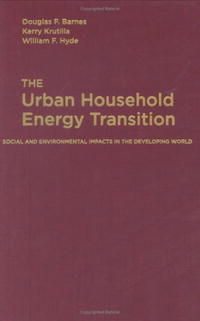As cities in developing countries grow and become more prosperous, energy use shifts from fuelwood to fuels like charcoal, kerosene and coal, and, ultimately, to fuels such as liquid petroleum gas, and electricity. Energy use is not usually considered a socio-economic issue. Yet, as this book demonstrates, the movement away from traditional fuels has a strong social class dimension, as poor people are the last to attain the benefits of using modern energy. The result is that health risks from the continued use of wood fuel fall most heavily on the poor, and indoor pollution from wood stoves has its greatest effect on women and children who cook and spend much more of their time indoors.
The Urban Household Energy Transition : Social and Environmental Impacts in the Developing World (RFF Press) Douglas F. Barnes, Kerry Krutilla, William F. Hyde
Подробная информация о книге «The Urban Household Energy Transition : Social and Environmental Impacts in the Developing World (RFF Press) Douglas F. Barnes, Kerry Krutilla, William F. Hyde». Сайт не предоставляет возможности читать онлайн или скачать бесплатно книгу «The Urban Household Energy Transition : Social and Environmental Impacts in the Developing World (RFF Press) Douglas F. Barnes, Kerry Krutilla, William F. Hyde»
